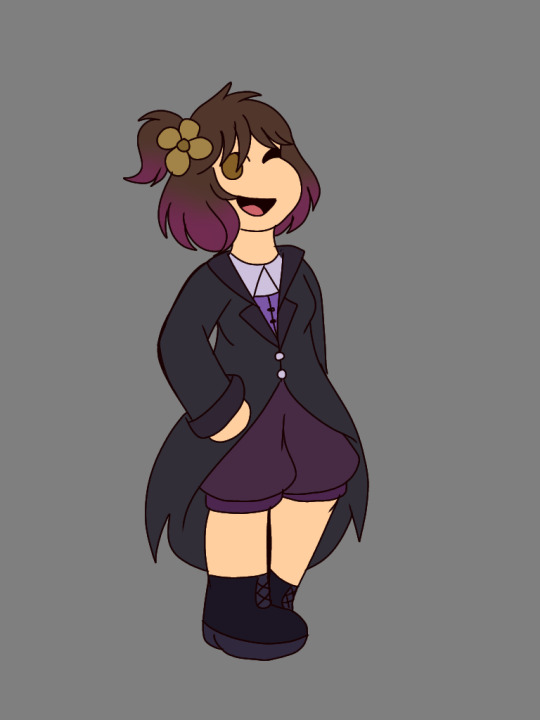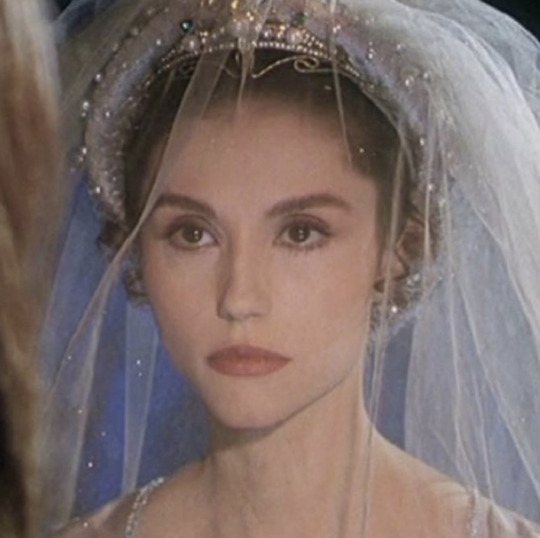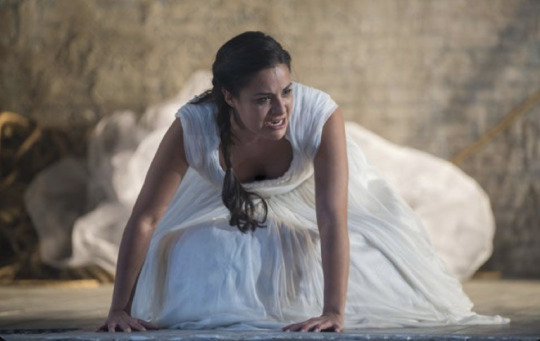#agamenon
Explore tagged Tumblr posts
Text
My favorite parts of the Iliad now that I’ve finished it for the first time:
Odysseus running around beating people with a scepter (and the amount of joy he got from it)
Agamemnon prematurely mourning Menelaus, who is standing right next to him.
Zeus telling Ares he hates him the most of all his children. God damn. He really did just say that to his face didn’t he.
Diomedes being a force of nature on the battlefield
Diomedes being a force of nature on the battlefield and everyone still treating him like he’s their annoying little brother who they unfortunately sometimes have to kind of listen to.
Diomedes.
“What are you talking about?” I laughed out loud multiple times because of this line. I don’t know what it is, but every single time it’s said I just imagine the most baffled/annoyed expression and tone of voice on whoever was saying it and I just. Lose it every time.
Helen being extremely passive aggressive the entire time she’s on the page. Seriously love her.
Helen believing her brothers didn’t come to war because they were ashamed of her, not knowing they have been dead for some time. It hurts and I love it.
Odysseus and Diomedes being sent on a spy mission and deciding that, after getting information from the Trojan spy, they are going to go to their camp and steal some horses. (And a chariot. And some armor, I think???) Utter chaos. They did not have to do this. This was A Choice.
Them coming back after stealing said horses and NOT A SINGLE PERSON QUESTIONS IT. IMPLYING THIS IS A NORMAL THING FOR THEM. AND THEY JUST,,,,,REGULARLY DO SHIT LIKE THIS.
Athena helping them.
The Trojans being annoyed with Paris
Nestor kicking Diomedes awake, who is, for some fucking reason, sleeping on the ground (?????)
Nestor.
Nestor going on long winded rants about His Day and his exploits. And everyone just kinda has to sit and listen to him talk.
Poseidon causing an earthquake so extreme Hades worried he was going to expose the underworld.
Artemis calling Apollo a baby for not wanting to fight Poseidon
Apollo ignoring her entirely. Peak sibling energy.
Achilles calling Patroclus’ ghost “true heart.” I know what you are.
Athena helping Diomedes in the funeral games.
Athena getting so mad Apollo made Diomedes drop his whip during said games she sabotaged Eumelus and made Diomedes’ horses run faster.
Antilochus threatening his horses into running faster.
This working.
Odysseus and Ajax wrestling and being so evenly matched that everyone gets tired of watching.
When they get up for round three Achilles telling them to “put not eachother further to such cruel suffering.”
The idea that Achilles was so sick of watching them that he compares it to actively being in pain.
Odysseus praying to Athena for help when he’s loosing the footrace.
Athena actually helping him.
Athena sabotaging Ajax and making him slip and fall face first into dung.
Ajax saying Athena hovers over Odysseus like his mother. Everyone finds this hilarious. Odysseus does not disagree.
Diomedes continually aiming at Ajax’s neck while fighting for a sword and armor. They are stopped by the rest of the Achaeans in fear for Ajax’s safety.
Yea, I’m convinced the Iliad is a comagedy. A comedic tragedy. A tragic comedy?
#the iliad#tagamemnon#Odysseus#agamenon#achilles#diomedes#menelaus#irefy’s lit. notes#irefy’s classic lit. notes
919 notes
·
View notes
Text
i really had to read the iliad, when i haded the chance i chose the first percy jackson book instead so i see if i can start making contend of it( im not really liking it that much,sorry pjo fans)
#sorry to for the ugly designs of Diomedes and Achilles#art#artists on tumblr#epic the musical#fanart#design#epic#odysseus#epic odysseus#the odyssey#achilles#the iliad#the song of achilles#diomedes#diomedes of argos#agamenon#tagamemnon#greek mythology
114 notes
·
View notes
Text
I would SELL MY FREAKING KIDNEY for a Trojan War retelling novel from the perspective of one of the following characters:
- Diomedes. Bro is hands down one of the coolest Greek heroes, period. And yet he is so overlooked in every single adaptation. Some retellings cut him out entirely. And sure, he doesn’t contribute much to the grand scheme of the plot the same way Achilles or Odysseus does, but I feel like his story has so much potential for exploration and interpretation. His relationship with the other characters (especially Odysseus) is incredibly interesting, and he also has a badass and lowkey traumatizing backstory. Diomedes for the win.
- Menelaus. Again, super overlooked and underrated. So many retellings are hyper focused on the story of Paris and Helen; did she go along willingly? Was she kidnapped or coerced? (The answer to those questions depends on which writer you consult, so both interpretations are correct.) I feel like a lot of retellings portray Helen and Paris as star-crossed lovers and Menelaus as an old hag trying to separate them. Or they make Menelaus abusive or neglectful in order to find a reason for Helen to run away with Paris. He’s been villainized a lot, but in the myths he was one of the least morally questionable characters. His story would be so interesting. I want a thorough, in depth exploration of his relationship with Helen, with his brother Agamemnon, with his comrades, with his dad, etc. MENELAUS MY GUY they could never make me hate you.
- Hector and/or Andromache. One of the greatest couples of all time, yet their story ends so tragically. And it would be so cool to have a retelling following the Trojans, rather than the tradition of following the Achaeans. It would be kinda cool to have an alternating perspective sort of thing, like, one chapter from Hector’s perspective and on from Andromache’s perspective. Alternating perspectives would create a fun dichotomy between the two povs; Hector’s being the bloody and violent battlefield, Andromache’s being peaceful Troy. Until those two worlds collide, of course. These two (and Astyanax) deserved so much better.
- Agamemnon. Bear with me on this one, because it may seem questionable for a lot of people. Is he a misogynist jerk? Yes. Is he a horrible person? Of course. He’s a murderer, a slave owner, and a full-time asshole who sacrificed his own daughter. But is he a very compelling character? Absolutely. I’d like to know how he became this way, how he lost his moral compass, and how he has a complete lack of empathy for everyone except for Menelaus. I want to know about those two’s childhood, especially considering how messed up it probably was thanks to their dad and uncle. I’ve never read a book from the perspective of an all out horrible protagonist before, so I feel like this would be incredibly interesting. I’d like to see Agamemnon get so caught up and obsessive over his motives that he doesn’t even care about all the atrocities he’s committed at this point.
- Odysseus. This guy’s most well-known myth (The Odyssey) gets repackaged and pumped out in the form of books, movies, comics and musicals every other year since the Renaissance like Shrek or Kung Fu Panda (Sorry Pixar). But I’ve yet to read a single Trojan War retelling from his perspective. I wanna know more about his relationship with Agamemnon; is it exploitative? Is it mutually exploitative? Is it self-absorbed jerk x reluctant therapist? And also his relationship with Diomedes, since Ody did try to stab him. Mostly I wanna know how he came up with the Trojan horse, because I don’t understand how he just made that connection. ‘Ya guys, hear me out on this: A massive wooden horse…’ like bro what
- Paris. I know, I know, we’re not supposed to like him. He’s wrong for kidnapping Helen, but then again there are also many versions where she comes along willingly, and his characterization could be more than lustful, arrrogant coward. He’s a flawed person for sure, but he’s quite interesting. Paris is kind of giving Scott Pilgrim at times. I’d like to see him wrestle with the consequences of his actions and come to terms with his own selfishness and watch his kingdom crumble due to his own mistakes. Mostly because I like it when main characters get tortured, whether they deserve it or not. Once again, horrible actions, interesting character.
If any of yall have encountered a good retelling in the perspective of one or more of these characters, please let me know and I will scour the earth for it.
Disclaimer: I have nothing against Kung Fu Panda. It is my favourite Pixar series. I would watch the world burn for Kung Fu Panda. The best character is def master Shifu
#greek mythology#trojan war#the iliad#the odyssey#tagamemnon#greek myth retellings#diomedes#menelaus#hector#Andromache#agamenon#odysseus#paris#Helen#kung fu panda
98 notes
·
View notes
Text
Re reading the Illiad. I want to put Achilles in a blender.
22 notes
·
View notes
Text
✨Gals’s night out 💅

(To slaughter some Trojans)
#greek mythology#genderbend#genderswap#rule 63#greek myth art#epic the musical#character design#digital art#procreate#You know it’s that time of the year when you suddenly get the urge to make genderbend designs for the Iliad#Yes Achilles’ eye glow in the dark I refuse to elaborate#I love my warrior women#from left to right:#agamenon#menelaus#achilles#odysseus
29 notes
·
View notes
Text
Si los personajes de la Iliada fuesen al campamento mestizo, ¿cuáles creen que serían sus cabañas?
Mis opiniones:
Diomedes y Odiseo son de la cabaña 6 (Atenea) y no acepto discusiones.
Pienso que Macaón sería de la cabaña 7 (Apolo). También me imagino a Patroclo en esta porque me gusta verlo como un médico. Casandra, Heleno, Calcante y Enone también serían parte.
Agamenón, Aquiles y Héctor en la cabaña 1 (Zeus). Las cosas suelen ser... complicadas en ese lugar.
Menelao lo imagino en la cabaña 5 (Ares), porque en mi versión de la Ilíada siempre se refieren a él como "caro a Ares". Siento que Áyax el Grande también sería parte.
Paris en la cabaña 10 (Afrodita), junto a Helena (para su desgracia), pero de alguna forma Paris logra morir :D
Teucro sería de la cabaña 8 (Artemisa) por su habilidad en el arco y flecha.
¿A quiénes más se imaginan ustedes?
#the iliad#la iliada#percy jackson#percy pjo#odiseo#odysseus#diomedes#agamenon#aquiles#menelao#helena de esparta#hector of troy#paris of troy
7 notes
·
View notes
Text

got bored and made this
#telemachus#skibidi telemachus#skibidi toilet#skibidi toiletmachus#bored#what the fuck did i made#epic the musical#epic#agamenon
19 notes
·
View notes
Text



Feliz año nuevo gente
#myart#the iliad#la iliada#agamenon#Percy Jackson#Nico di angelo#thalia grace#annabeth chase#paris de Troya#helena de esparta#undertale au#reapertale#reaper!sans#reaper!toriel#soriel#sk8 langa#sk8 reki#moomintroll#snufkin#snufmin#funtime freddy#funtime foxy#campamento desventura#disventure camp ellie#disventure camp gabby#monster high
17 notes
·
View notes
Text
Reading the iliade rn and I know we shit on Nestor for yapping too much but GAWD DAMN DOES AGAMENON YAP A WHOLE LOT
#i hate him#but he's funny without meaning to#the iliad#agamenon#for the love of everything good SHUT UP PLEASE
3 notes
·
View notes
Text
always an angel, never a god






#boygenius#pheobe bridgers#lucy dacus#theotheronewhosenameicantremember#julien baker#always an angel never a god#always an angel#never a god#not strong enough#iphigenia#greek mythology#battle of troy#angel#romeo and juliet#agamenon#artemis
45 notes
·
View notes
Text

Cuando mi hijo nació le juré que yo siempre sería un buen padre, que lo cuidaría… que lo mantendría a salvo de todo mal… Que yo rompería esta maldición, y juré que, aunque la lluvia y la sangre cayeran del cielo, yo no permitiría que jamás lo alcanzara una sola gota, que viviría intacto, protegido y libre.
Y ahora tú me profetizas que no es el plan de los dioses que yo permanezca fiel a mi juramento y que mi propia muerte será la lluvia que marcará a mi hijo, mi sangre su condena.
18 notes
·
View notes
Text
The Iliad: A Raw and Powerful Depiction of the Heroism and Tragedy of War
Homer’s Iliad is a classic epic that depicts the glory and tragedy of war through the heroism of its characters. The poem revolves around the Trojan War between the Greeks and Trojans, and it portrays the devastating effects of war on both sides. On the one hand, the Iliad glorifies the heroism and bravery of the warriors involved in the conflict. The poem is known for its portrayal of heroic…

View On WordPress
#achilles#agamenon#ancient battles#ancient greece#epic poem#epic poems#homer#humanity#literature#philosophy#the iliad#trojan war#war
1 note
·
View note
Text
¿Podemos hablar de cómo el 30% del canto I de la Iliada es Aquiles y Agamenón insultándose? XD
4 notes
·
View notes
Text
for some reason I've started the epic quest to try translating the Iliad as so many have done before me (I've translated 20 lines which is a lot with only a dictionary but very little in the long run)
but page 1 i saw a funny epitheton ornans in chriseis's speech. he says:
"sons of atreus and other greeks with good greaves..." (greave = shin armor)
like, how stupidly funny is that? bro is coming to free his daughter but nooo he must mention the shin armor of the greeks first. peak flattery. I will be using this
I'll be making more posts about the weird shit i find in translation but i thought that description was just so funny
#iliad#briseis#achilles#patroclus#agamemnon#tagamemnon#diomedes#homeric epics#homer#on another note#homer uses a lot of dual forms#which are a bit rarer in usual ancient greek#in the beginning of the first book#i think to specifically emphasize agamenon and achilles#and its really cool to be able to read that emphasis#idk just something i noticed#he also uses it referring to the atreides a few sentences later#but it really presses on the individual importance of these characters#because he literally says “these TWO and no one else”#i wonder if he does this while discussing patroclus and achilles together...#we'll see
34 notes
·
View notes
Text
Ups.
Menelao y Helena van a la Isla de las Tentaciones. Paris está de tentador. Venus de presentadora. Duran medio programa.
#tagamemnon#la iliada#agamenon#helena de troya#no voy a traducir este#menelao#la isla de las tentaciones#afrodita#fanfiction en español#archive of our own#ao3#black tea blue pens
4 notes
·
View notes
Text
Agamemnon: look there's no reason why we can't hang out together
Achilles: I have a reason
Agamemnon: which is?
Achilles: I.DONT.LIKE.YOU
#Achilles#agamemnon#tsoa#the song of achilles#tsoa incorrect quotes#tsoa achilles#tsoa agamenon#the illiad#incorrect illiad
48 notes
·
View notes